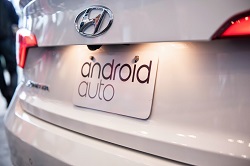Operators’ inability to keep up with more nimble digital upstarts has been met with a sympathetic ear from an unlikely source, with a Google executive saying operators do not have the luxury to experiment.
At Cambridge Wireless’s Future of Wireless event yesterday, Tim Carter, Head of Business Developments for Android in EMEA, said it was unfair to expect incumbent companies to afford the time and money in exploring new business models.
Carter was referring to Google’s own Project Loon, which uses balloons to bring connectivity to those without internet access. The digital company has also bought drone companies to explore this area, which is also being explored by Facebook.
Carter said: “It’s an experiment and experimentation is something that’s a luxury. Rich people, like Google, and people who have nothing to lose, like entrepreneurs. People in the middle, like carriers, they feel there’s pressure on revenues so they feel there’s less room to experiment.”
Google and Facebook have been criticised for their “scary” drone and Loon projects by the GSMA, with Director General Anne Bouverot previously claiming the projects were driven more by marketing concerns and even suggesting the drones could come under terrorist attack.
http://www.mobileeurope.co.uk/Press-Wire/gsma-chief-slams-scary-facebook-drone-project
HOwever, there was common ground between Google and operators in their agreement of the effects of regulation on innovation.
Carter said the regulatory landscape affected its decision of where to launch Project Loon: “We launched in New Zealand because the New Zealand government was much easier to deal with instead of the Australian government where, it could be argued, the project would have had a lot more benefit.”
The challenge facing operators was ironically illustrated by a video broadcast during a conversation between Orange executives Carolina Costa and Daniel Gurrola.
The video, dating back to the 1990s, predicted the world in 2003, where a Clinton, Hillary not Bill, was running for office, consumers used talking digital assistants, touchscreen devices and online mapping as they went along their daily lives.
As delegates noted, the problem was that while these innovations may have been predicted by a mobile operator some 20 years ago, it was Apple and Google who leaped into the fray with smartphones and digital services, not telcos.



